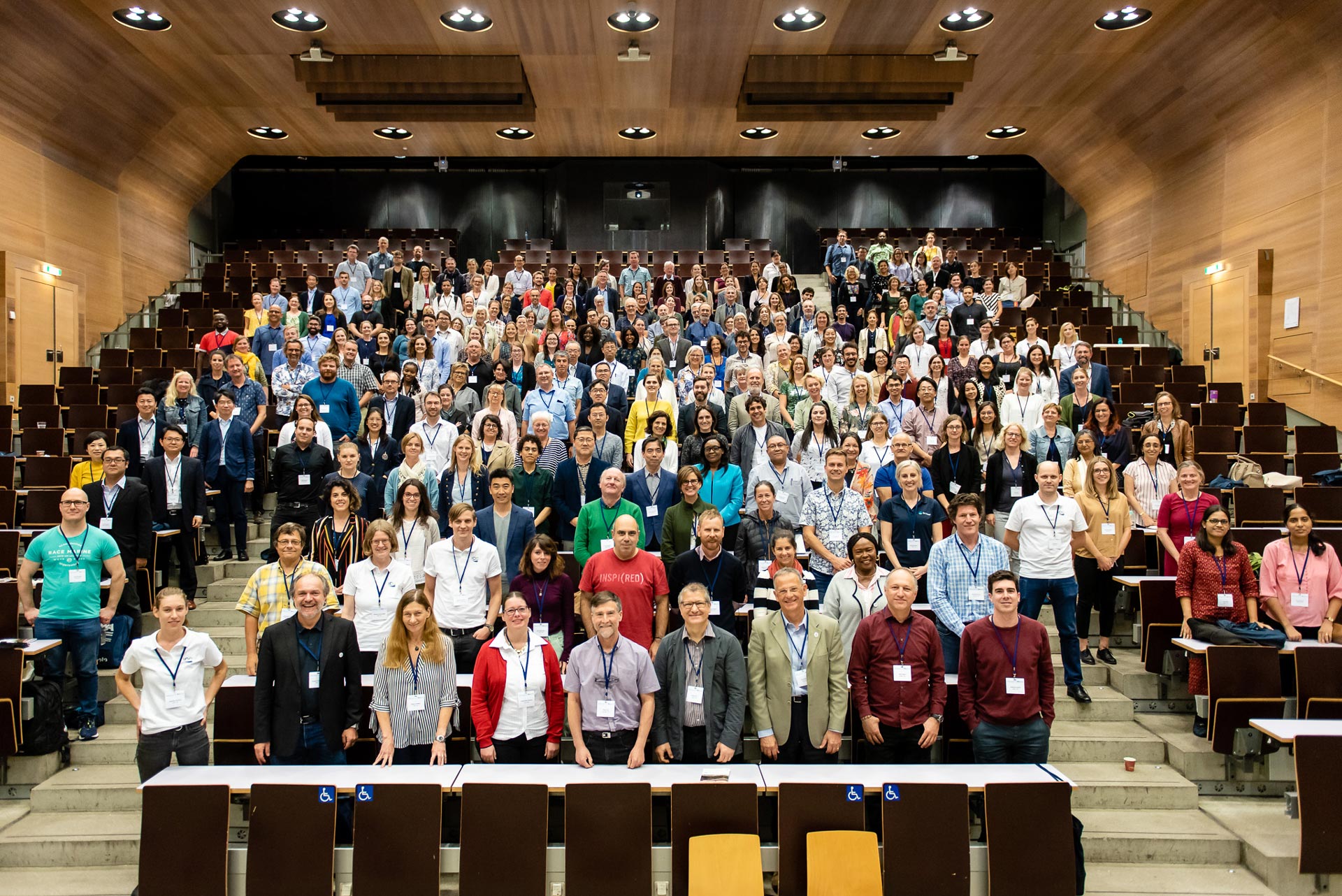| Global Water Pathogen Project Newsletter Vol. 6, Issue 5 August 31, 2020 |
International Water Association, Specialist Group

International Water Association, Specialist Group
| Global Water Pathogen Project Newsletter Vol. 6, Issue 5 August 31, 2020 |
The UNC Water and Health Conference: Science, Policy and Practice will be held October 26 – 30, 2020 virtually from the comfort of your home or office. The conference will explore drinking water supply, sanitation, hygiene and water resources in both developing and developed countries with a strong public health/COVID-19 emphasis.
Please check the following link for details: https://waterinstitute.unc.edu/conferences/waterandhealth2020/
Global Water Pathogen Project
Special Newsletter
August 12, 2020
https://mailchi.mp/00ccc4f994c6/world-water-week-at-home-august-24-28-2020?e=e1e2204839
Annual UNC Water and Health Conference: Science, Policy, and Practice will be held online during October 26 – 30, 2020. Please check the details from the following link:
https://mailchi.mp/ec431cc8808e/unc-water-and-health-conference-goes-virtual?e=e346e029f1
Global Water Pathogen ProjectNewsletter Vol. 6, Issue 4
August 5, 2020
https://mailchi.mp/ea74fc12d11f/gwpp-newsletter-volume-6-issue-4?e=e1e2204839
Global Water Pathogen Project, Special Newsletter on July 27, 2020
Join GWPP-K2P, SaniPath and HyCRISTAL on Wednesday, August 26th at 15:00 CET for our interactive demonstration of three tools that provide support for urban sanitation decision-making.
https://mailchi.mp/bf014e34f967/gwpp-k2p-and-world-water-week-at-home?e=e1e2204839
A postdoc position in the environmental and food virology lab in Wellington. Please check details from the following link:
New position (2 year fixed term for starters) in our environmental and food virology lab in Wellington (Porirua). Scientist – https://t.co/ISfjS4vkSg…
— Joanne Hewitt (@joannehewittnz) July 24, 2020
A postdoctoral scholar is sought to support the National Science Foundation
funded Research Coordination Network on wastewater surveillance for SARS-CoV-2.
Please find details from the following link:
We're looking for a one year postdoc to support our NSF RCN on SARS-CoV-2 wastewater surveillance. Position can be performed remotely; other details here: https://t.co/4MsomhOdZE
— Kyle Bibby (@kylejbibby) July 21, 2020
Please help spread the word and reach out if you're interested!
HRWM SG specialists will specifically provide updated information about WBE for SARS-CoV-2 and other important viral water pathogens including poliovirus, Hepatitis E virus, adenovirus and norovirus.
You can register from the following link:
You can download the newsletter of HRWM SG, June 2020 issue from the following link:
Pharmaceuticals’ removal by constructed wetlands: a critical evaluation and meta-analysis on performance, risk reduction, and role of physicochemical properties on removal mechanisms
Huma Ilyas; Ilyas Masih; Eric D. van Hullebusch
Quantifying public health risks from exposure to waterborne pathogens during river bathing as a basis for reduction of disease burden
M. M. Majedul Islam; Md. Atikul Islam
Design and implementation of water purification system based on deep ultraviolet light emitting diodes and a multi-pass geometry reactor
Pallabi Pramanik; Shaswati Das; Arghya Adhikary; Chirasree Roy Chaudhuri; Anirban Bhattacharyya
Cyanobacteria – insidious foe of the skin?
Damjana Drobac Backović; Nada Tokodi; Borislava Nikolin; Zorica Svirčev
A risk-based evaluation of onsite, non-potable reuse systems developed in compliance with conventional water quality measures
Mary E. Schoen; Michael A. Jahne; Jay Garland
Next Day Legionella PCR: a highly reliable negative screen for Legionella in the built environment
Katherine E. Fisher; Leah P. Wickenberg; Lesley F. Leonidas; Anna A. Ranz; Michelle A. Habib; Rafael M. Buford; William F. McCoy
Estimating the malaria transmission over the Indian subcontinent in a warming environment using a dynamical malaria model
Shweta Chaturvedi; Suneet Dwivedi
Fate of Ascaris at various pH, temperature and moisture levels
Jenna Senecal; Annika Nordin; Björn Vinnerås
Shotgun metagenomics reveals differences in antibiotic resistance genes among bacterial communities in Western Balkans glacial lakes sediments
Brankica Filipic; Katarina Novovic; David J. Studholme; Milka Malesevic; Nemanja Mirkovic; Milan Kojic; Branko Jovcic
Factors associated with adherence to safe water chain practices among refugees in Pagirinya refugee settlement, Northern Uganda
Thomas Mugumya; John Bosco Isunju; Tonny Ssekamatte; Solomon Tsebeni Wafula; Richard K. Mugambe
Rotavirus contamination of surface waters from the northwest of Argentina
Verónica Emilse Prez; Hugo Ramiro Poma; Georgina Gisela Giordano; Matías Victoria; Silvia Viviana Nates; Verónica Beatriz Rajal; Patricia Angélica Barril
Child undernutrition in households with microbiologically safer drinking water and ‘improved water’ in Tanna, Vanuatu
Alexandra L. Morrison; Hanneke Lewthwaite; Lisa A. Houghton; Daniel Sum Jimmy Nasak; Katrina J. Sharples; Peter Brown; John A. Crump; Susan J. Jack
Diversity, virulence and antibiogram traits of Escherichia coli recovered from potable water sources in Gharbia, Egypt
Walid Elmonir; Etab Mohamed Abo Remela; Yasmine Alwakil
| Global Water Pathogen Project Newsletter Vol. 6, Issue 3 June 17, 2020 https://mailchi.mp/7ee1fb24c56a/gwpp-newsletter-sars-cov-2-in-wastewater?e=e1e2204839 |
Monday 22.06.2020: Web conference “Pool and Spa in time of Covid-19”. 15:00 – 18:00 CEST
Registration: https://www.triumphelearning.it/
Registration advice: without an Italian fiscal, you can type an “x” in all mandatory financial fields (16x an “x” in the fiscal code field).
We would also like to know what the guidelines for swimming pools are in the different countries. To do this, you can fill in the questionnaire online (or ask someone from your network to do it for you). Federica will present the results of this questionnaire during the conference.
You can see the program from here:
https://hrwm-watermicro.com/wp-content/uploads/2020/06/WebConference_Pool-and-SPA_2020-PROGRAM-1.pdf
Water Research, Volume 181, 15 August 2020, 115942.
Walter Randazzo, Pilar Truchado, Enric Cuevas-Ferrando, Pedro Simón, Ana Allende, Gloria Sánchez
https://www.sciencedirect.com/science/article/pii/S0043135420304796
Water Research, Volume 181, 15 August 2020, 115926.
Kata Farkas, David I. Walker, Evelien M. Adriaenssens, James E. McDonald, Luke S. Hillary, Shelagh K. Malham, Davey L. Jonesae
https://www.sciencedirect.com/science/article/pii/S0043135420304632
Recent Comments